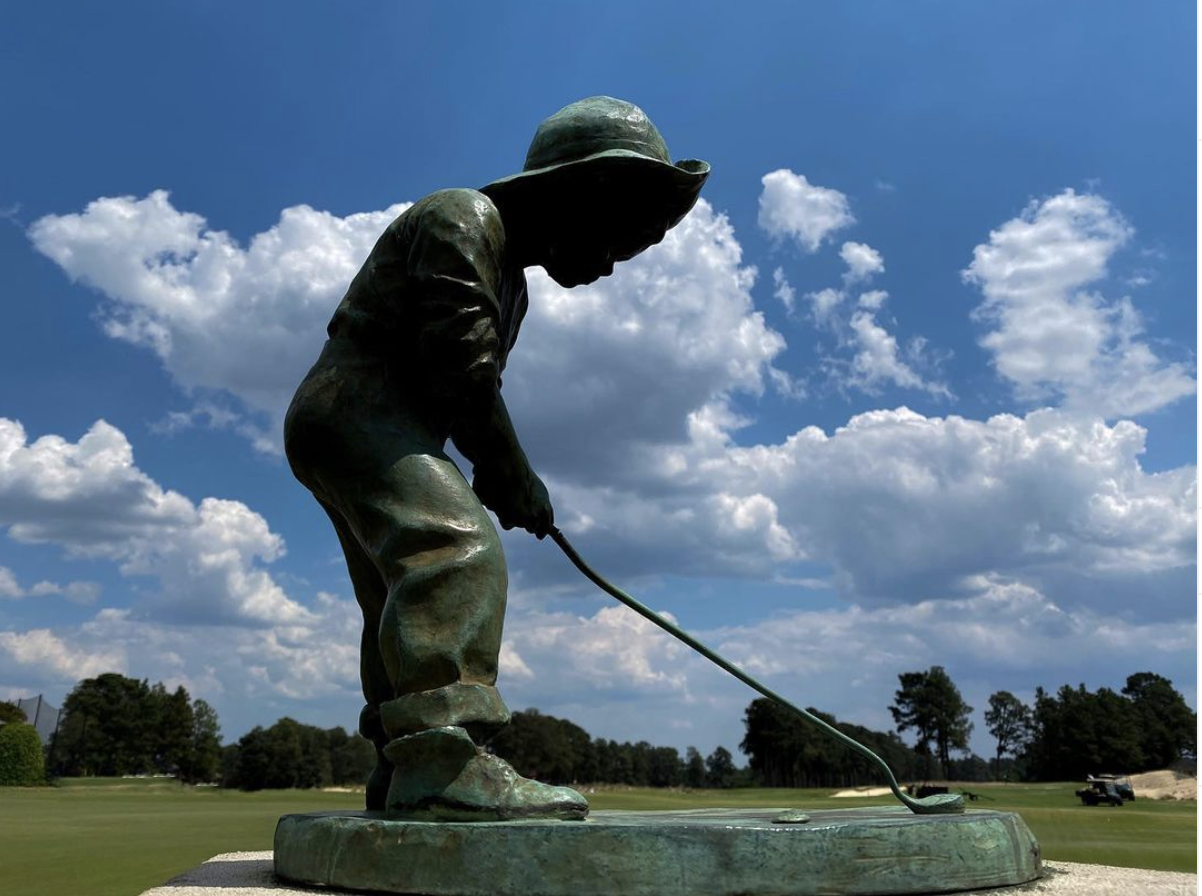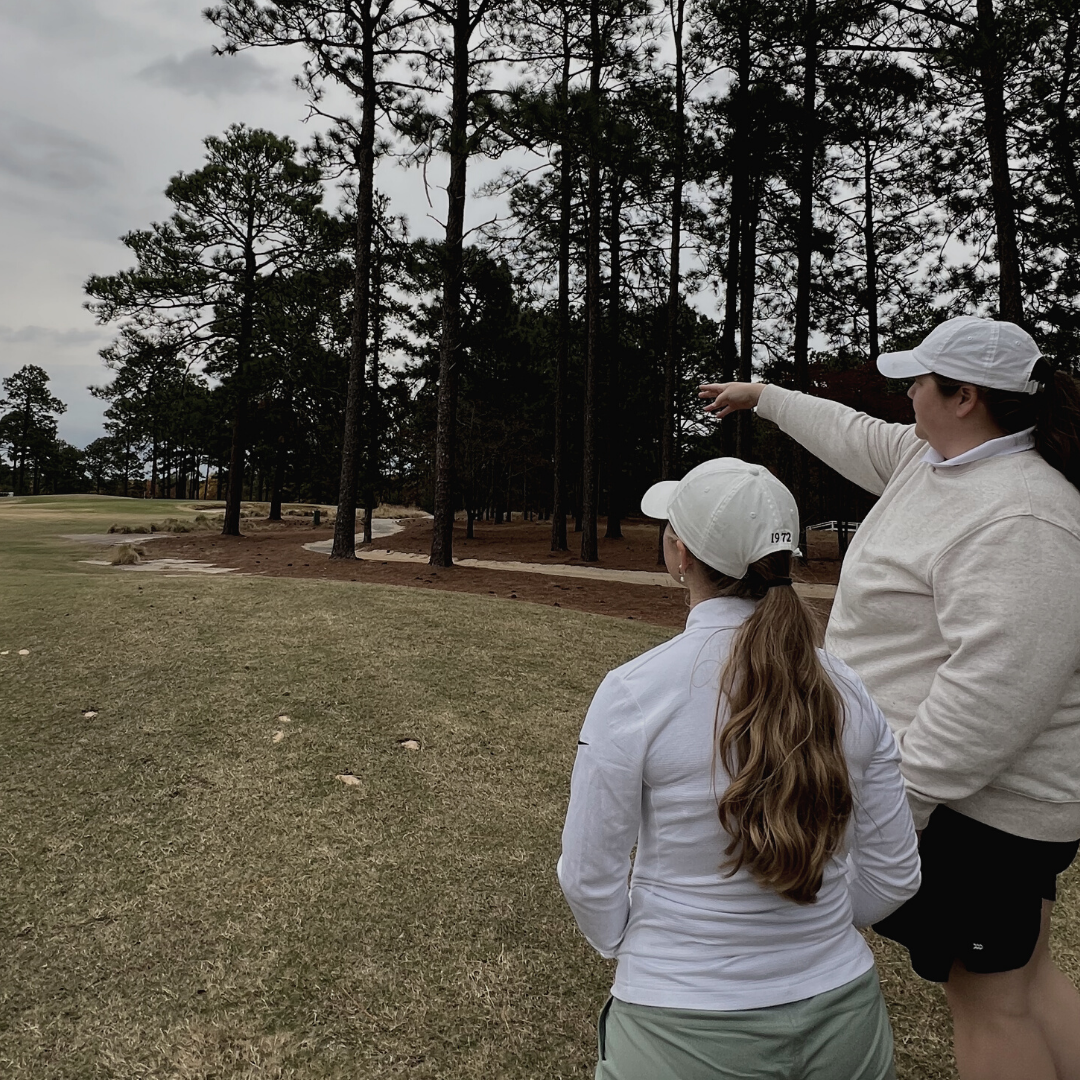For many junior golfers, the dream of playing college golf represents the pinnacle of their youth sports career. It’s the culmination of years of dedication, practice, and competition. However, the journey to securing a spot on a college golf team is anything but straightforward. Junior golfers face a unique set of challenges and emotions that can make this path both exhilarating and daunting. Understanding these challenges—the frustrations, desires, and fears they experience—is crucial for anyone involved in helping young golfers achieve their goals, whether it’s coaches, parents, or the athletes themselves.

In this blog post, we’ll delve into the top frustrations, desires, and fears that junior golfers encounter as they work towards their goal of playing college golf. By understanding these elements, we can better support these young athletes on their journey and help them navigate the complexities of the college recruiting process.
Frustrations
- Lack of Visibility from College Coaches
One of the biggest frustrations for junior golfers is the feeling of being invisible to college coaches. Despite performing well in local or regional tournaments, many junior golfers struggle to get noticed by the coaches of the college programs they aspire to join. This lack of visibility can lead to feelings of discouragement and self-doubt. - Inconsistent Performance in Tournaments
Golf is a game of precision, and even the smallest lapse in concentration can lead to inconsistent performances. Junior golfers often find themselves frustrated by their inability to consistently play at their best, particularly in high-stakes tournaments where college coaches may be watching. - Balancing Academics with Golf Practice
The demands of schoolwork and golf practice often collide, leaving junior golfers feeling overwhelmed. Maintaining good grades while dedicating enough time to practice and tournaments is a significant source of frustration, as both are crucial for college admissions. - Difficulty in Finding the Right Tournaments to Play In
The junior golf tournament landscape is vast, with countless events taking place each year. Deciding which tournaments to play in can be overwhelming, as junior golfers must choose events that will best showcase their skills to college coaches. Making the wrong choices can feel like a missed opportunity. - High Costs of Coaching and Equipment
Golf is an expensive sport, and the costs associated with coaching, equipment, and tournament travel can be a heavy burden for junior golfers and their families. This financial strain is a common frustration, particularly when the expenses seem to outweigh the results. - Pressure from Parents and Coaches
The pressure to perform well can come from multiple directions—parents, coaches, and even the golfers themselves. This external and internal pressure can lead to stress and anxiety, making it difficult for junior golfers to enjoy the game and play to their full potential. - Limited Access to Quality Practice Facilities
Not all junior golfers have access to top-notch practice facilities. Limited access to quality courses, practice facilities, and training equipment can hinder a golfer’s ability to improve, leading to frustration as they watch their peers with better resources excel. - Unclear Recruiting Timelines and Processes
The college golf recruiting process can be confusing and opaque. Junior golfers often feel frustrated by the lack of clear guidelines on when and how to reach out to college coaches, what steps to take at each stage of their high school career, and how to effectively market themselves. - Lack of Mentorship and Guidance
Having a mentor can make a world of difference in a junior golfer’s development, but not all young athletes have access to this kind of support. The absence of a knowledgeable mentor or guide can leave junior golfers feeling lost and unsure of how to navigate the path to college golf. - Injuries and Physical Strain
Golf may not be as physically demanding as some contact sports, but it still takes a toll on the body. Injuries, whether they are minor strains or more serious conditions, can derail a junior golfer’s progress and lead to frustration as they struggle to maintain their training and performance levels.
Desires
- Gaining the Attention of Top College Golf Programs
The ultimate goal for many junior golfers is to capture the attention of top college golf programs. Being noticed by a prestigious coach or receiving an offer from a well-known program is often seen as the first step toward a successful college golf career. - Improving Consistency in Their Game
Consistency is key in golf, and junior golfers desire the ability to play well in every round. They strive to develop the mental and physical skills necessary to perform at a high level, regardless of the conditions or pressures of competition. - Securing a College Golf Scholarship
For many junior golfers, a college golf scholarship represents the culmination of years of hard work. The desire to earn a scholarship is a significant motivator, driving them to put in countless hours of practice and compete at the highest level possible. - Playing in Prestigious Junior Golf Tournaments
Competing in well-known junior golf tournaments is a dream for many young golfers. These events offer the opportunity to showcase their skills on a big stage, gain exposure to college recruiters, and measure themselves against the best in their age group. - Access to Better Coaching and Training Facilities
Junior golfers often aspire to train with the best coaches and have access to top-notch facilities. They believe that better coaching and resources will help them refine their skills and give them an edge in the highly competitive world of junior golf. - Building a Strong Golf Resume for College Applications
A well-rounded golf resume is essential for college applications. Junior golfers desire to build a resume that includes strong tournament results, leadership roles, and community service—all of which make them more attractive candidates to college coaches. - Developing a Standout Mental Game
The mental aspect of golf is just as important as the physical. Junior golfers desire to develop a strong mental game that will help them stay focused, manage pressure, and bounce back from setbacks. A robust mental game is often what sets apart the good from the great. - Receiving Personalized Guidance from Coaches
Personalized feedback and guidance from coaches can be incredibly valuable. Junior golfers desire coaches who understand their individual strengths and weaknesses and can tailor their training programs to maximize their potential. - Networking with College Golf Alumni and Mentors
Building connections with college golf alumni and mentors can provide junior golfers with valuable insights and advice. They desire these relationships to help them better understand the college golf experience and how to prepare for it. - Staying Injury-Free Throughout Their Junior Career
Avoiding injuries is a top priority for junior golfers. They desire to stay healthy and injury-free so they can continue to train, compete, and progress toward their goal of playing college golf without setbacks.
Fears
- Not Being Noticed by College Coaches
The fear of going unnoticed by college coaches is pervasive among junior golfers. Despite their best efforts, many young athletes worry that their performances won’t catch the eye of the coaches they hope to impress. - Peaking Too Early or Too Late in Their Golf Career
Timing is crucial in sports, and junior golfers fear that they may peak either too early, before coaches start paying attention, or too late, missing out on the opportunity to showcase their best performance during the critical recruitment years. - Missing Out on Academic Opportunities Due to Golf
While golf is a significant focus, junior golfers are also concerned about their academic futures. They fear that their dedication to golf might come at the expense of their education, limiting their college options outside of sports. - Choosing the Wrong Tournaments to Showcase Their Skills
With so many tournaments to choose from, junior golfers fear making the wrong decisions about where to compete. Playing in the wrong events could mean missing out on the chance to demonstrate their abilities to the right coaches. - Financial Strain on Family
The costs of pursuing a golf career can be daunting, and many junior golfers fear the financial strain their passion places on their families. They worry about the sacrifices their families are making and whether those sacrifices will pay off. - Letting Down Family and Coaches
Junior golfers often carry the weight of expectations from their families and coaches. They fear that they might disappoint those who have invested time, money, and emotional support into their golfing journey. - Mental Burnout or Fatigue
The fear of burnout is real for junior golfers, who spend countless hours practicing and competing. They worry that the mental and emotional toll of the sport might lead to burnout, making it difficult to continue pursuing their goals. - Missing Recruitment Deadlines
The college recruitment process is full of deadlines, and junior golfers fear missing out on key opportunities because they weren’t aware of or prepared for these critical dates. This fear can lead to anxiety and a sense of urgency as they approach their senior year. - Not Having a Mentor or Role Model in the Sport
Junior golfers who lack a mentor or role model may fear that they’re missing out on valuable guidance and advice. Without someone to look up to or seek advice from, they may feel lost in the competitive world of junior golf. - Sustaining a Career-Ending Injury
Injuries are a part of any sport, but the fear of a career-ending injury is particularly acute for junior golfers. An injury at the wrong time could derail their dreams of playing college golf and leave them wondering what might have been.
The journey to playing college golf is filled with challenges that test the resilience, dedication, and passion of junior golfers. By understanding the frustrations, desires, and fears that these young athletes face, we can better support them as they work towards their goals.
Whether you’re a coach, a parent, or a junior golfer yourself, recognizing these challenges is the first step in navigating the complex and competitive world of college golf recruiting
For more posts like this one, check out our blog here: Path Fore Success Blog. You can also follow us on Instagram & Twitter for more!












